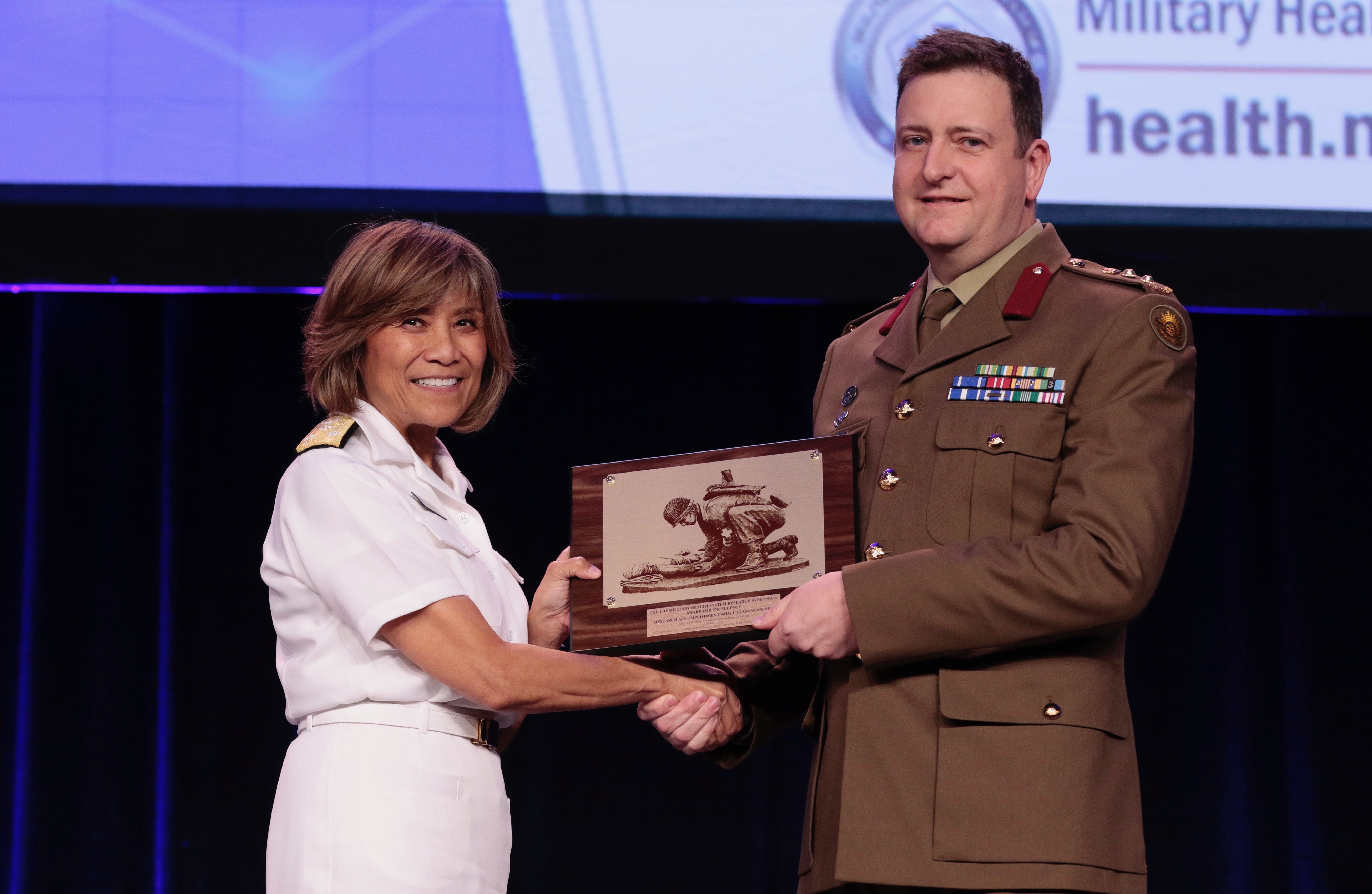Australian researchers nab first ever win at prestigious US Military Health System Research Symposium

Professor Michael Reade accepting the award at the US Military Health System Research Symposium in Orlando, Florida.
The Royal Brisbane and Women’s Hospital’s Professor Michael Reade and his research team including Dr Anthony Holley have been the first Australians to win an award at the US Military Health System Research Symposium, the largest military clinical science conference worldwide.
“The study that won the award was the CLIP (Cryopreserved vs. Liquid Platelet) pilot trial, conducted by the Australian Defence Force and the Australian Red Cross Blood Service,” said Professor Michael Reade.
The research into frozen blood was selected from 1733 abstract submissions, winning best collaboration between an academic and military research team, and was the first time an Australian team has won a prize at the conference.
“It’s very pleasing to see recognition at this high-level for the investment made in academic medicine and surgery by the ADF and its partners,” said Professor Reade.
Platelet transfusions are life-saving in times of trauma, however platelets have a short shelf life of 5 days, making it impossible to provide them to regional and remote civilian hospitals, and military field hospitals.
“Freezing platelets extends their shelf life to 4 years, which would make them available in both military hospitals and small-medium sized civilian hospitals as well,” he said.
“Both Defence and the Australian civilian community would benefit enormously if frozen platelets could be introduced into widespread practice.”
The study was the first major project to reach completion resulting from the academic collaboration between the Australian Defence Force, the University of Queensland and the RBWH that began in 2012.
“We randomised 121 patients in 4 Australian hospitals to receive either frozen platelets or standard liquid-stored platelets if they needed a platelet transfusion during or immediately after their surgery,” Professor Reade said.
Prior to this, there had only been one small clinical trial of this technology approximately 20 years ago, with an insufficient number of patients to provide enough evidence for frozen platelets to be registered for general use.
“This trial found encouraging results but the sample size was underpowered to reliably assess safety.
“Encouraged by our pilot trial and informed by its results, we have applied this year for $1.7 million in NHMRC funding to include another 800 patients, which would be enough for the TGA to register frozen platelets for widespread use.”
The team hope that winning the award will highlight to funders the importance that the clinical and scientific community holds for research into frozen blood.
